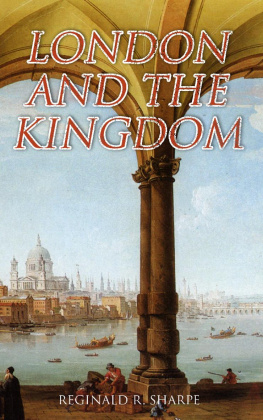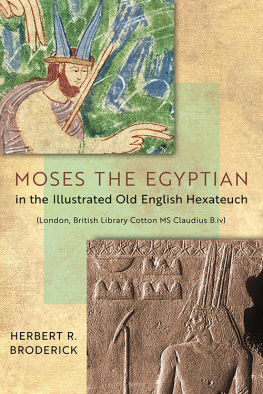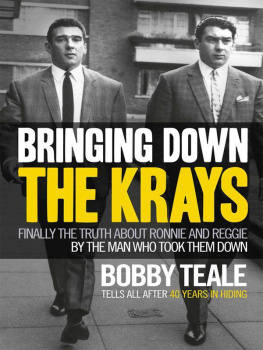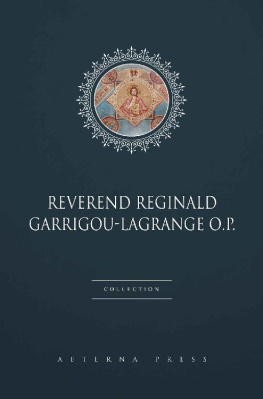CHAPTER I.
The greatness of London. How far due to its geographical position.
The wealth and importance of the City of London are due to a variety of causes, of which its geographical position must certainly be esteemed not the least. The value of such a noble river as the Thames was scarcely over-estimated by the citizens when, as the story goes, they expressed to King James their comparative indifference to his threatened removal of himself, his court and parliament, from London, if only their river remained to them. The mouth of the Thames is the most convenient port on the westernmost boundary of the European seaboard, and ships would often run in to replenish their tanks with the sweet water for which it was once famous.
After the fall of the Western Empire ( A.D. 476), commercial enterprise sprang up among the free towns of Italy. The carrying trade of the world's merchandise became centred for a time in Venice, and that town led the way in spreading the principles of commerce along the shores of the Mediterranean, being closely followed by Genoa, Florence, and Pisa. The tide, which then set westward, and continued its course beyond the Pillars of Hercules, was met in later years by another stream of commerce from the shores of the Baltic. Small wonder, then, if the City of London was quick to profit by the continuous stream of traffic passing and repassing its very door, and vindicated its title to be calledas the Venerable Bede had in very early days called it the Emporium of the World.
But if London's prosperity were solely due to its geographical position, we should look for the same unrivalled pre-eminence in commerce in towns like Liverpool or Bristol, which possess similar local advantages; whilst, if royal favour or court gaieties could make cities great, we should have surely expected Winchester, Warwick, York, or Stafford to have outstripped London in political and commercial greatness, for these were the residences of the rulers of Mercia, Northumbria, and Wessex, and the scenes of witena-gemts long before London could boast of similar favours. Yet none of these equals London in extent, population, wealth, or political importance.
The tenure of the City of London compared with other boroughs.
We must therefore look for other causes of London's pre-eminence, and among these, we may reckon the fact that the City has never been subject to any over-lord except the king. It never formed a portion of the king's demesne ( dominium ), but has ever been held by its burgesses as tenants in capite by burgage (free socage) tenure. Other towns like Bristol, Plymouth, Beverley, or Durham, were subject to over-lords, ecclesiastical or lay, in the person of archbishop, bishop, abbot, baron or peer of the realm, who kept in their own hands many of the privileges which in the more favoured City of London were enjoyed by the municipal authorities.
In the early part of the twelfth century, the town of Leicester, for instance, was divided into four parts, one of which was in the king's demesne, whilst the rest were held by three distinct over-lords. In course of time, the whole of the shares fell into the hands of Count Robert of Meulan, who left the town in demesne to the Earls of Leicester and his descendants; and to this day the borough bears on its shield the arms of the Bellomonts. The town of Birmingham is said, in like manner, to bear the arms of the barons of that name; the town of Cardiff, those of the De Clares; and Manchester, those of the Byrons. Instances might be multiplied. But the arms of the City of London and of free boroughs, like Winchester, Oxford, and Exeter, are referable to no over-lord, although the borough of Southwark still bears traces in its heraldic shield of its former ecclesiastical connection.
The powers of an over-lord.
The influence of an over-lord for good or evil, over those subject to his authority, was immense. Take for instance, Sheffield, which was subject, in the reign of Elizabeth, to the Earl of Shrewsbury. The cutlery trade, even in those days, was the main-stay of the town, and yet the earl could make and unmake the rules and ordinances which governed the Cutlers' Company, and could claim one half of the fines imposed on its members.
When, during the reign of Charles II, nearly every municipal borough in the kingdom was forced to surrender its charter to the king, the citizens of Durham surrendered theirs to the Bishop, who, to the intense horror of a contemporary writer, reserved to himself and his successors in the See the power of approving and confirming the mayor, aldermen, recorder, and common council of that city.
London under the Roman Empire.
The commercial greatness of London can be traced back to the time of the Roman occupation of Britain. From being little more than a stockaded fort, situate at a point on the river's bank which admitted of an easy passage by ferry across to Southwark, London prospered under the protection afforded to its traders by the presence of the Roman legions, but it never in those days became the capital of the province. Although a flourishing centre of commerce in the middle of the first century of the Christian era, it was not deemed of sufficient importance by Suetonius, the Roman general, to run the risk of defending against Boadicea, and although thought worthy of the title of Augustaa name bestowed only on towns of exceptional standingthe Romans did not hesitate to leave both town and province to their fate as soon as danger threatened them nearer home.
Roman highways.
For military no less than for commercial purposesand the Roman occupation of Britain was mainly a military onegood roads were essential, and these the Romans excelled in making. It is remarkable that in the Itinerary of Antoninus Pius, London figures either as the starting point or as the terminus to nearly one-half of the routes described in the portion relating to Britain. The name of one and only one of these Roman highways survives in the city at the present day, and then only in its Teutonic and not Roman formthe Watling or "Wathelinga" Street, the street which led from Kent through the city of London to Chester and York, and thence by two branches to Carlisle and the neighbourhood of Newcastle. The Ermin Street, another Roman road with a Teutonic name, led from London to Lincoln, with branches to Doncaster and York, but its name no longer survives in the city.
London bridge and the city wall.
The same reasons that led the Romans to establish good roads throughout the country led them also to erect a bridge across the river from London to Southwark, and in later years to enclose the city with a wall. To the building of the bridge, which probably took place in the early years of the Roman occupation, London owed much of its youthful prosperity; whenever any accident happened to the bridge the damage was always promptly repaired. Not so with the walls of the city. They were allowed to fall into decay until the prudence and military genius of the great Alfred caused them to be repaired as a bulwark against the onslaughts of the Danes.
The departure of the Roman legions, and its consequences.
"Britain had been occupied by the Romans, but had not become Roman," and the scanty and superficial civilization which the Britons had received from the Roman occupation was obliterated by the calamities which followed the northern invasions of the fifth and following centuries. A Christian city, as Augusta had probably been, not a vestige of a Christian church of the Roman period has come down to us. It quickly lapsed into paganism. Its very name disappears, and with it the names of its streets, its traditions and its customs. Its inhabitants forgot the Latin tongue, and the memories of 400 years were clean wiped out. There remains to us of the present day nothing to remind us of London under the Roman empire, save a fragment of a wall, a milestone, a few coins and statuettes, and some articles of personal ornament or domestic uselittle more in fact, than what may be seen in the Museum attached to the Guildhall Library. The long subjection to Roman rule had one disastrous effect. It enervated the people and left them powerless to cope with those enemies who, as soon as the iron hand of the Roman legions was removed, came forth from their hiding places to harry the land.













